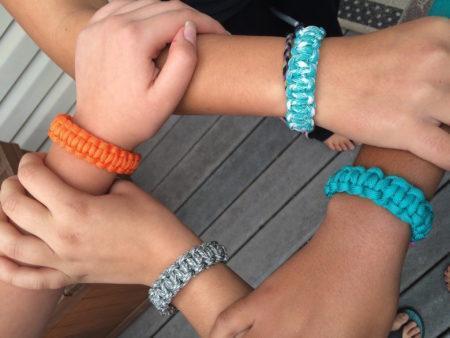“How do we honor the demands on your time, while ensuring that the adults who faithfully prepare lessons have enough critical mass of teens in the room to teach?”
High School Formation Hits a Rut
In June of 2015, I had two very demoralized Senior High teachers. Few high school youth were attending Sunday morning formation hour; and the packaged curriculum wasn’t engaging the high school youth. Combine that with our church’s location in a town with an excellent, but demanding, high school… and Sunday School had become a very low priority.
As a United Methodist congregation, we believe that study is a foundational part of our Wesleyan theological practice. That said, how could we respect the needs of our high schoolers who are busy with academic and sports activities, while also being faithful to our UM heritage?
A New Tactic: What Sparks Interest?
We started by asking our high school students questions – lots of questions. What do you want to explore? How can we invite you to use your faith out in the world? How do we honor the demands on your time, while ensuring that the adults who faithfully prepare lessons have enough critical mass of teens in the room to teach? We used email, one-on-one conversations with the teens (and parents), and phone calls. By the end of July 2015, we had a long list of topics: from how to use the Bible, to human sexuality, to what it means to be a Christian in the public square.

Our New Plan Takes Shape
In light of busy teen schedules, we met every other week. Our teens felt we were respecting their time, and in return, the teens committed to being present. Of the thirteen eligible teens, average attendance was nine (of course, never the same nine twice!)
We asked for a youth voice in our planning process and in leading our team. The young woman who enthusiastically volunteered reached out via email and telephone to the members of the group, keeping them engaged and connected. She provided awesome snacks as well!
The Content: Focus on Covenant
To frame all of the issues our teens wanted to explore, we used the theme of God’s covenant. This decision worked best for our context – other churches or denominations might choose a different biblical frame, depending on your strengths and traditions.
At our first meeting, the teens and teachers created their own covenant for working together. We followed this with studies of the three foundational covenants of the Hebrew Scripture: God’s covenants with Noah, Abraham, and Moses. We then turned to the New Covenant in the New Testament: God’s love for all of us as taught and lived by Jesus. We spent several sessions looking closely at the Baptismal Covenant – what it means and the effort it requires to live. In addition, our congregation has its own Relational Covenant for Christian Living, and the students and teachers connected it back to the Baptismal Covenant.
Finally, the group was ready to apply scripture, reason, tradition and experience (Methodists call this “the Wesleyan Quadrilateral”) to the social issues we had named at the beginning. In this way, we focused on what it actually means to live in Christian covenant, asking questions such as:
- How do we love our enemies, not only those who harm us, but those with whom we disagree?
- How do we embrace difference in the political arena – and how we can be stewards of God’s gifts in the public square?
- How do we respect and live with differences in faith practices and religious traditions?
- How do we honor differences in sex and gender, sexual identity, economic status, and race?
- How do we respect and love all of our neighbors?
The Results
We did not come to consensus regarding the questions above, but by the last class (first Sunday of June), we had teens committed to a common practice of Christian discernment. We had been blessed to witness the Holy Spirit moving in their conversations and their actions. And we knew that we now had a new model of High School formation. The proof came when, upon bidding farewell to our seniors, the rest of the group said, “Ok, now let’s get in touch with the kids who will join us next fall and figure out how to do this again!”
Did you enjoy this article? Consider subscribing to Building Faith and get every new post by email. It’s free and always will be. Subscribe to Building Faith.
